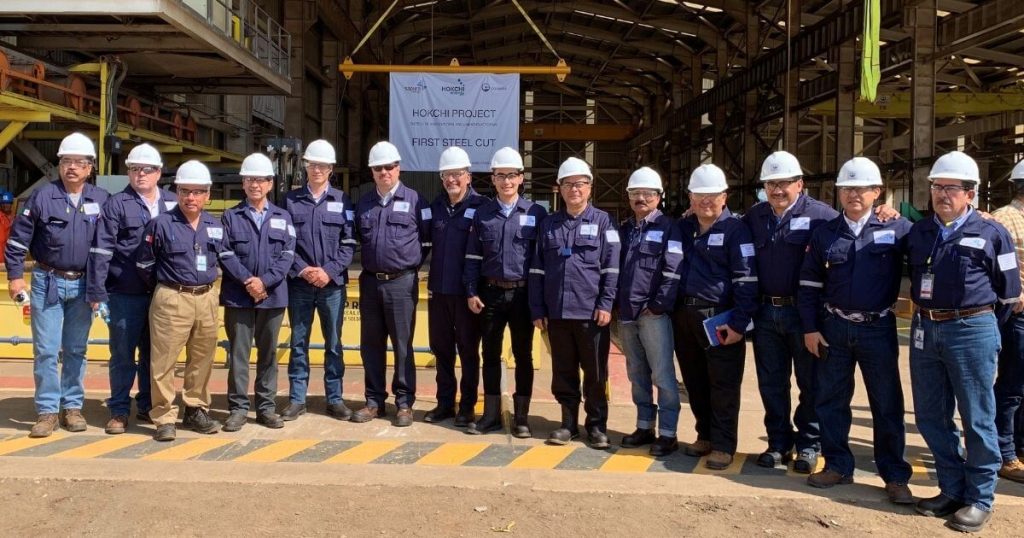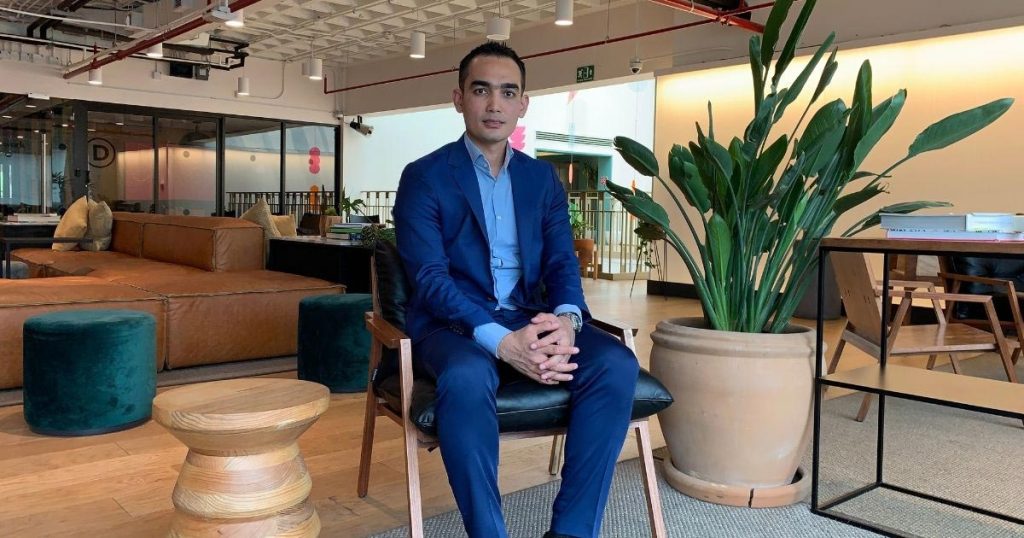Sapura Energy’s Ir. Nik Hasmizie from the Class of 2021 for Working Professionals (MBA-WP) discusses his ascent from Engineer to Project Manager, his experience thriving in international waters, and his thirst for upskilling even as an industry veteran.
Building on Two Decades of Engineering Expertise
Sapura Energy’s Ir. Nik Hasmizie believes that expertise is no excuse for stagnancy. With almost 20 years of experience in the Marine & Oil and Gas industry, he continued his pursuit for advancement with Asia School of Business (ASB) MBA as part of the Working Professionals (MBA-WP) Class of 2021.
Currently, Nik works at Sapura Energy Berhad, where he has been providing his expertise on marine and oil & gas EPCIC (Engineering, Procurement, Construction, Installation & Commissioning) projects since November 2013.
Prior to his work with Sapura Energy, Nik graduated in mechanical engineering from Universiti Teknologi Malaysia (UTM) in Johor, Malaysia and has since worked with major shipping and oil & gas companies such as MISC Berhad, American Bureau of Shipping (ABS), Lloyd’s Register, and SBM Offshore. Recently, Nik sat down with us to discuss his own experience working across the world and his transition from engineering and construction to leadership roles.
ASB: What do you like about being a Project Manager at Sapura?
I joined Sapura Energy in late 2013. My role as a Project Manager is very client-facing. The scale of each project can range from $25 million to $500 million USD. You deal a lot with the client, interact with engineering and procurement departments, and oversee constructions and offshore installation works.
Sapura Energy Berhad is one of the world’s leading integrated oil and gas solution providers operating across the entire upstream value chain. Sapura covers the exploration, development, production, rejuvenation, decommissioning and abandonment stages of the value chain.
So as a Project Manager, I cover the end-to-end of a project. It’s not a 9-to-5 job, to say the least, and it’s challenging because you work outside of your hours to ensure that a project is properly executed and controlled. But with proper management and collaboration with your team delegates – it’s very rewarding at the end of a project.
Tell us more about how you got into oil and gas.
Truth be told, getting into the oil and gas industry wasn’t the initial plan. Before graduation, I was applying for many companies across different industries but my initial interest was always mechanical engineering. When I heard back from MISC Berhad and started a position as an engineer – I had the chance to go to Japan in 2002 to get involved with the new ship building of LNG carriers at Mitsubishi Heavy Industries, Nagasaki.
I was there for three months of On-Job Training (OJT). Day-to-day, I attended the site of the process and it was fascinating to see the conception from paper plans to a ship that’s fully operational and can start sailing. I returned to Malaysia for a few months and then was sent to Geoje Island, South Korea to get involved with a new ship building project at Samsung Heavy Industries.
For nearly two years, I was involved with this project to build four Aframax-sized crude oil tankers and we all saw this happen from engineering design until the vessels completed their sea trials and sailed away.
As an engineer, I’ve always wanted to see the end-to-end of something and I got my wish even with my first company and being relatively new in the industry. It’s a wonderful and constant intellectual challenge.
Has your job given you international exposure too?
I was recently in Mexico City for work, for a long-term assignment. Sapura provided the accommodation and facilities to stay in for that duration and it was a wonderful experience living in this big city. Together with my family, we enjoyed local street food, events with the locals and travelling with friends and colleagues around Mexico.
My two daughters attended international school there and all of us (including myself and wife) took part in a 1-hour session, twice a week, to learn the Spanish language, by engaging a local teacher to come to our home. Travelling has always been a challenging part of the job – but again, very exciting because I’m learning new things about my career every day.
How did you launch your journey with ASB?
I’ve always wanted to do an MBA, that’s for sure. Before 30, I set a personal target to get my professional engineer and chartered engineer credentials – and I achieved that. And before 40, I’ve wanted to start my MBA. Sapura had also announced prior that the company was opening their scholarship applications for those who meet certain criteria to apply for ASB’s program.
I tried my luck, uncertain of whether or not I would get it. But I was selected for the interview with Sapura management, and passed, and also passed the interview with ASB. In total, six other members from Sapura and I were part of the MBA class.
In August 2018, I attended my first residency at ASB. Balancing my full-time position and maintaining my studies was something that I thought was going to be super tough because I was always busy with a project. But Sapura supported my development exceptionally, and because of ASB’s unique flexibility, I had the time to still grow in my career and develop my corporate skills with ASB’s syllabus.
During the first part of the MBA, you were flying in to study in KL and working in Mexico at the same time. Was it difficult coping with this arrangement?
Before Covid-19 hit, keep in mind that I wasn’t attending online classes or anything like that. So, I was still working in Mexico City and visiting KL once every six weeks to continue my studies.

Nik Hasmizie (center) and his team onsite for a project in Mexico during the “First Steel Cut” ceremony
But it was through ASB’s flexibility in schedule and the arrangement of the entire syllabus that made it possible. It’s very clear that ASB understood that this was an MBA made for working professionals, and it didn’t feel like an additional burden but rather a healthy development for us.
How did you balance between delivering excellence to your clients while pursuing an MBA at the same time?
I was always able to email my clients back on time, complete all deliverables and be in constant communication with them. There was no need to compromise on timelines or delay a project indefinitely because of my MBA. Work went on like normal, as the schedule accommodates for our day jobs.
That said, it is still a big challenge, and time management is the most important factor here, and if one understands how to divide their time between responsibilities – then completing an MBA whilst working a full-time job will not be as impossible as people make it seem.
Why is it vital that working professionals who are experts in their industry continue to pursue further education?
For me, I wanted to have a deeper understanding of other aspects such as finance, accounting, data science, entrepreneurship and corporate strategy. It goes beyond furthering my career too. Joining ASB showed me that an MBA can also steer someone in the right direction in terms of networking with individuals from different countries, professions and interests. I share this sentiment about our ASB professors as well, who have always helped us see different perspectives.
What newfound skills learned at ASB were most valuable in your journey?
One of the most vital skills I’ve learnt is the power of negotiation. We learnt about this in one of the negotiation classes in ASB and that has helped me understand the dynamics of negotiating with vendors and clients in Sapura as well.
In terms of promotions, there is always potential in Sapura as more projects roll in. I’m in the midst of a project that require my attention, but down the road, I do hope to take on higher responsibilities and showcase my newfound knowledge learned from my time at ASB.
I can’t emphasize enough the power of delegation and empowerment of subordinates – which is something we were taught as well. During my time in ASB, when I was occupied with studies, I had to mobilize my staff to take matters into their own hands when I was not around. It was a win-win situation because I learned how to get things done faster with the resources of those around me, and my staff were able to make more decisions and be more in control of what was happening in the project as well.





